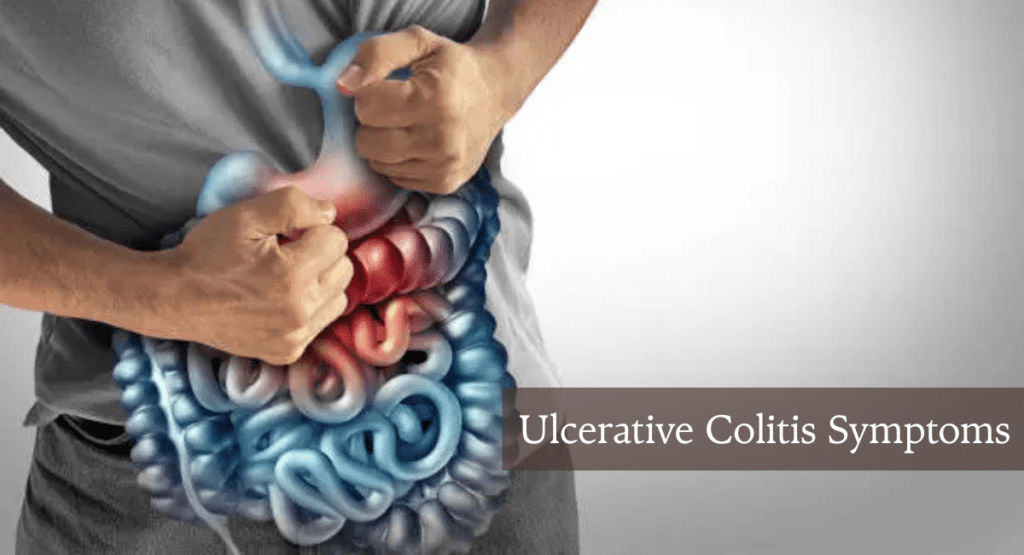Ulcerative colitis (UC) is a chronic inflammatory bowel disease (IBD) that affects the inner lining of the colon and rectum. Characterized by persistent inflammation, pain, and unpredictable flare-ups, it can significantly impact quality of life. However, with the right ulcerative colitis treatment, tailored dietary adjustments, and holistic care, it is possible to manage this condition naturally and effectively.
In this blog, we explore the causes and symptoms of UC, the latest treatments available (including natural therapies), official treatment guidelines, and dietary strategies to support gut health — especially if you’re seeking ulcerative colitis treatment in Arizona.
What Is Ulcerative Colitis?
Ulcerative colitis is an autoimmune condition, meaning the body’s immune system mistakenly attacks healthy tissue in the colon, causing chronic inflammation and ulcers. Unlike Crohn’s disease, which can affect any part of the digestive tract, UC is limited to the large intestine.
Although the exact cause is unknown, a combination of genetic predisposition, environmental triggers, immune system response, and gut microbiome imbalance are often involved.

Common Ulcerative Colitis Symptoms: What to Watch For
Recognizing the early warning signs of UC is key to preventing complications and initiating timely care. Ulcerative colitis symptoms may vary based on severity and which part of the colon is inflamed.
Typical Symptoms Include:
- Chronic diarrhea (sometimes bloody or with pus)
- Abdominal pain or cramping
- Rectal pain or bleeding
- Urgent need to defecate
- Fatigue or low energy levels
- Unintended weight loss
- Loss of appetite
- Fever or chills
- Feeling of incomplete bowel emptying
These symptoms often follow a pattern of flare-ups and remission. Identifying personal triggers and managing lifestyle factors can greatly reduce the frequency of flare-ups.
What Is the Latest Treatment for Ulcerative Colitis?
Treatment for UC has evolved in recent years. The goal is not only symptom relief but also achieving mucosal healing, reducing inflammation, and improving long-term quality of life. In Arizona, patients have access to both conventional and integrative therapies.
1. Biologics & Targeted Therapies (Conventional Medicine)
New-generation biologics such as:
- Vedolizumab
- Ustekinumab
- Tofacitinib
These are designed to target specific proteins or immune pathways responsible for inflammation. They’re often prescribed when traditional therapies fail.
2. Fecal Microbiota Transplant (FMT)
FMT involves transplanting healthy gut bacteria from a donor into the patient’s colon. This procedure aims to restore microbial balance and reduce inflammation — promising for UC management.
3. Stem Cell Therapy
Still under investigation, this treatment hopes to promote healing of intestinal tissue and modulate immune function. Though not mainstream yet, it’s a promising field for the future.
4. Natural & Functional Medicine Approaches
Patients seeking ulcerative colitis treatment in Arizona increasingly turn to integrative clinics that:
- Test for food intolerances and gut microbiome imbalances
- Offer herbal support (e.g., turmeric, slippery elm, aloe vera)
- Incorporate stress-reduction strategies like yoga, meditation, and breathwork
- Focus on whole-body healing with personalized nutrition and lifestyle plans
🔍 Where to Start:
Visit functional medicine centers or naturopathic doctors in Arizona offering gut-healing programs and microbiome testing. Combining these with your gastroenterologist’s care can yield powerful results.
Ulcerative Colitis Treatment Guidelines (2025 Update)
Leading medical organizations now promote a personalized and stepwise treatment model. Here’s a breakdown of the latest ulcerative colitis treatment guidelines:
1. Early Diagnosis & Monitoring
- Emphasis on colonoscopies, calprotectin tests, and imaging to monitor disease activity.
- Early detection reduces risk of long-term complications like colon cancer.
2. Treat-to-Target Strategy
- Set goals like achieving symptom remission, mucosal healing, and improved quality of life.
- Therapies are adjusted based on patient response and tolerance.
3. Multidisciplinary & Personalized Care
- Collaboration between gastroenterologists, dietitians, psychologists, and natural medicine specialists.
- Mental health and stress management are integrated into overall treatment.
4. Gut Microbiome Support
- Patients are encouraged to nurture their gut flora through probiotics, prebiotics, and microbiome-friendly diets.
- Unnecessary antibiotic use is discouraged as it can worsen microbial imbalance.
Ulcerative Colitis Diet: What to Eat and Avoid
Diet alone may not cure UC, but it plays a vital role in symptom control, gut healing, and flare-up prevention. A ulcerative colitis diet is highly personalized — what works for one person may not for another. But general guidelines can help.
✅ Best Foods for UC Management:
- Cooked, peeled vegetables (carrots, squash, spinach)
- White rice, potatoes, sourdough bread, and low-fiber grains
- Lean protein sources (chicken, fish, tofu, eggs)
- Bone broth — healing and rich in gut-soothing amino acids
- Fermented foods (yogurt with probiotics, kefir — in moderation)
- Healthy fats (olive oil, avocado, flaxseed oil)
❌ Foods to Avoid (Especially During Flare-Ups):
- Raw vegetables, seeds, and high-fiber foods
- Caffeine and alcohol
- Spicy or fried foods
- Processed meats and artificial sweeteners
- Dairy (if lactose intolerant)
🍽️ Sample One-Day UC-Friendly Diet (During Flare-Up):
- Breakfast: Scrambled eggs with white toast and peppermint tea
- Lunch: White rice with steamed zucchini and grilled chicken
- Snack: Applesauce or banana
- Dinner: Mashed sweet potatoes with sautéed spinach and bone broth
- Drinks: Herbal teas (chamomile, ginger), plenty of water
⚠️ Always consult with a dietitian or healthcare provider before making major changes, especially during flare-ups or if you have other medical conditions.

Natural Tips for Everyday Ulcerative Colitis Management
Living with UC doesn’t just involve medications — lifestyle matters too. Here are supportive, natural ways to manage UC alongside medical or holistic treatment:
🌿 Everyday Care Tips:
- Stay Active: Gentle movement like walking, yoga, or swimming aids digestion and reduces stress.
- Mindfulness & Stress Relief: Mind-body practices (deep breathing, meditation, guided relaxation) reduce flare-up frequency.
- Keep a Symptom Tracker: Record food, symptoms, and stressors to identify your personal triggers.
- Hydration is Key: Aim for 8–10 glasses of water daily — UC often increases fluid loss.
- Get Good Sleep: Prioritize rest to support healing and reduce inflammation.
🩺 If You Live in Arizona:
Look for centers offering ulcerative colitis treatment in Arizona with integrative services like:
- Functional lab testing
- Nutritional therapy
- Personalized supplement protocols
- Stress and lifestyle coaching
Conclusion: Empowered Living with Ulcerative Colitis
Ulcerative colitis may be a lifelong condition, but it doesn’t have to define your life. With an individualized care plan, rooted in both science and holistic wisdom, people living with UC can thrive. Whether you’re seeking advanced medical therapies or natural approaches, the path to healing begins with awareness, action, and support.
If you’re in Arizona and searching for integrative solutions, explore clinics and specialists who offer comprehensive, patient-centered ulcerative colitis treatment in Arizona. Healing the gut requires more than prescriptions — it’s a journey of nourishment, mindfulness, and resilience.


